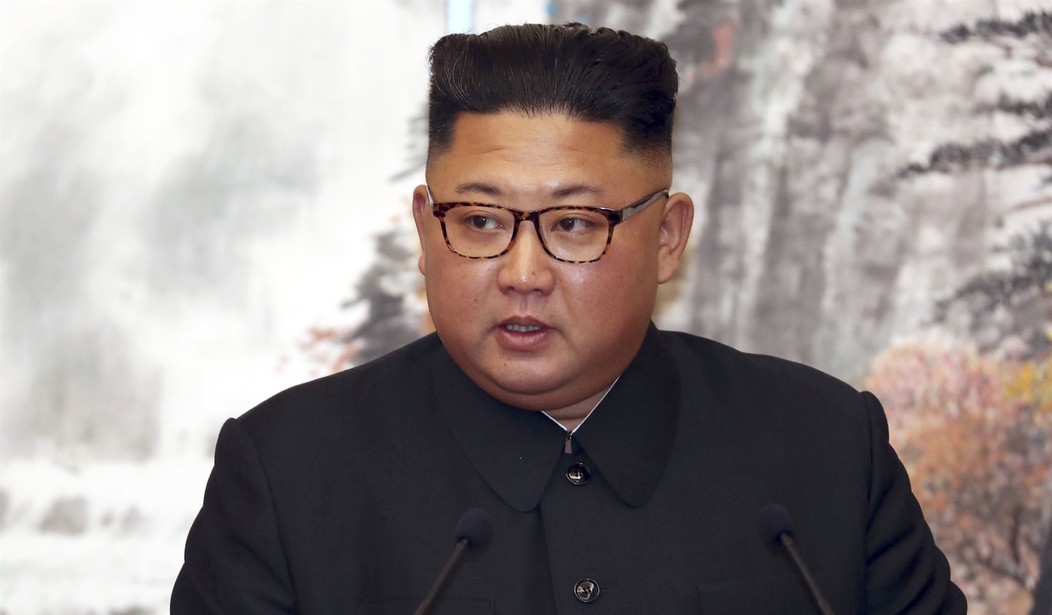Media commentators and feminists regularly promote abortion nationally in the name of women’s “freedom.” But they would do well to take a look internationally, or, more specifically, North Korea, to see how abortion is wielded against women.
On July 28, the Office of the United Nations High Commissioner for Human Rights (OHCHR) released a report detailing “human rights violations against women detained” in North Korea, or the Democratic People’s Republic of Korea. The report centered on interviews with more than 100 women “who were subjected to forced repatriation and subsequent detention” from 2009 to 2019. They later escaped – to reveal chilling stories of sexual abuse and forced abortions.
The report focused on the “specific vulnerabilities faced by women detainees,” including sexual violence in pre-trial detention centers, holding centers, short-term labor camps, and ordinary prisons.
While detained, the report highlighted that women were “dealt with almost exclusively by male officers,” including guards who “could observe the female detainees at all times.”
After forced repatriation, being returned to their country, detainees said that they underwent body searches. Among other things, they were forced to strip naked and occasionally commanded “to squat and jump repeatedly to check whether they had hidden items in their body cavities.”
“In some facilities,” the report continued, “officials of the Ministry of State Security [MPS] conducted invasive searches of body cavities, including the vagina.”
Some of the former detainees revealed that they and others were raped or sexually harassed by guards. One woman said she was raped in 2010.
When she resisted, she said, “He threatened that he was [an officer]… so that I would be humiliated if I rejected him.”
Recommended
“He even told me he could help me to be released sooner if I did as he said,” she added.
If they reported their perpetrators, these women feared punishment. One woman, while in a pre-trial detention facility in 2015, said that another woman shared with detainees that she had been sexually harassed.
One “detainee who heard the story shared it with officers,” she remembered. “As a result, all detainees were punished by being denied food” while the victim “received a more severe punishment.”
Another woman held in 2013 said that officers “sexually abused detainees but no one could speak about it” for “fear of being beaten up.”
“I witnessed one officer who called out a woman in her 20s one night while the rest of the detainees were told to go to sleep,” she added. “He was drunk. She was told to remove her clothes and was sexually abused.”
When detainees reported it, they were “later punished and beaten up.”
Additional women spoke of sexual violence in short-term labor camps, including “sexual exploitation in exchange for food or less demanding work.”
One such woman, detained in 2013, remembered another detainee who “had sex with a guidance officer.” Afterwards, this woman “experienced favourable treatment” and could rest while the others were forced to work.
In the report’s annex, another woman said that her family “paid 700 yuan for a lenient report” on her in 2013. Her teenaged sister also “abided” with the request of an official for a “sexual favour.”
“However," the woman revealed, “it did not help my case.”
Women were also threatened with forced abortions and infanticide.
One woman detained in a holding center in 2015 remembered another woman who became pregnant while in China, so the “guards knew that her baby had Chinese blood.”
“This was an issue as the local laws prevented any North Korean woman from giving birth to a mixed race baby,” she said. “The doctor in the MPS centre told her to get an abortion despite the fact that she wanted to keep the baby.”
Former detainees also recalled prison officials who “reportedly sought to cause abortions through beatings or hard labour.”
One detainee remembered two pregnant women detained with her in 2010. One was three months pregnant, the other was five months pregnant.
Both “were kicked very badly so that they would have lost their baby,” she remembered.
Women also called attention to cases of infanticide in holding centers “which reportedly took place in cases when the pregnancy was too advanced to carry out an abortion.”
One woman remembered seeing another woman who was seven months pregnant “taken to the hospital to have an abortion” in 2012.
She was “sent back because her pregnancy was too advanced,” the report said, and “later delivered in the cell without medical assistance.”
Before she delivered, the woman remembered, the guards “put bricks on her back, and forced her to walk around” every day for about a week.
“The baby was alive when born,” she added. “I was told to wrap the baby and put it outside.”
She suspected the little one was left to die – in winter temperatures below freezing.
Just a year before, a repatriated woman was also “reportedly forced to deliver a baby prematurely.”
“The child was reportedly alive at birth but killed by guards,” the report read. “The mother reportedly died one week later because she had not received medical assistance.”
This woman “was told she should go through a miscarriage and was told to fall on her hips,” one woman recalled. “She did it three or four times but it did not happen.”
That’s when she was “given an injection to make her miscarry.”
“I saw her giving birth with my own eyes... I heard crying, but then the baby was placed face down, wrapped in plastic and taken out of the cell,” the woman said. The mother “died after a week or so.”
These women face cruelties unique to their sex, something that feminists – and any human being – should challenge and condemn.
























Join the conversation as a VIP Member